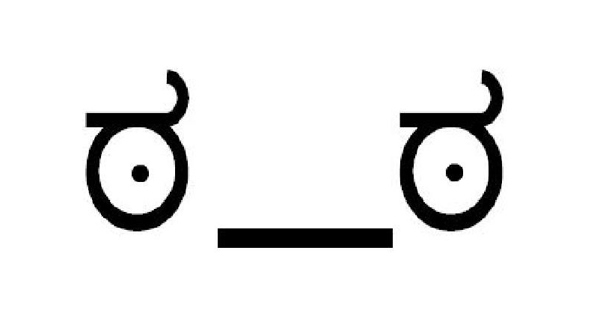
Like politics and religion, birth control is extremely personal. My experience with the Mirena IUD is not everyoneʼs, but it definitely is not an experience I'll repeat. EVER.
In the winter of 2007 I had a pregnancy scare due to my inability to remember take my birth control pill every day (God forbid I ever have to take regulated medicine for a life-saving reason or I will die) and went in search of a new method to prevent 4 a.m. panic attack-induced visits to Walgreens to buy E.P.T. and Gatorade.
At the time, the Mirena — which the FDA approved in 2000 — was a relative unknown to me. And when my OB/GYN told me about this miraculous device that would not only prevent pregnancy for five years but also STOP MY PERIOD for the duration, I behaved like any adult mother of two would: by immediately calling my husband to freak out like weʼd won the lottery. While my doctor was still in the room.
My doctor showed me a display of the Mirena, which looked like plastic flexible "T," and explained it would be inserted straight into my uterus via my cervix — and stay there. Unlike non-hormonal copper IUDs (the only other kind approved by the FDA), which actually increase menstrual bleeding, Mirena stops it altogether in most women. (I could choose the non-hormonal one if I was sensitive to progesterone.) The Mirena can lead to major side effects: the risk of my uterus being "WTF plastic doesnʼt go here!" and expelling it; the IUD getting embedded in my uterine wall; the strings being cut too short and getting "lost" or not being cut short enough and stabbing my husband during sexy times. But benefits outweighed the risks to me. So in it went. (By the way, your cervix really doesnʼt like being pried open so when a foreign object is jammed through it, it hurts accordingly.)
Other than initial cramping that felt no worse than minor PMS cramps, the next few weeks were amazing. No more remembering to take my pills, no more bleeding five days out of the month. It was a uterine miracle. So why would I suspect that little "T" of plastic when I woke up one morning with the most excruciating headache Iʼd ever experienced? If youʼve never had a migraine before, allow me to explain. Imagine the worst music you can think of and mix it with nails on a chalkboard. Now pump that into your ears at the highest volume known to man while strobe lights as bright as the sun flash inches from your face. The first time it happened, I thought I had the flu. I threw up like I did, anyway. Sound hurt, light hurt, breathing hurt. But it passed.
And then it came back. Again. And again.
Finally I went to our family doctor, who officially declared them migraines and prescribed two new medicines. One for emergency "OH MY GOD LET ME DIE" migraines and one — wait for it — to take daily as a preventative. Womp womp. So now I was right back in the boat I started in. Only with new and exciting variations on what happened when I, inevitably, forgot to take my pills. But I did learn something about myself: Pain as a motivator is far more inspiring to me than fear of pregnancy. It didnʼt take long to get that regimen down, but it WOULD take two more trips to the doctor before he put two and two together and realized the migraines were being triggered by my birth control.
Oh well, in for a penny, in for a pound, as no one says. I figured it was the price to pay for no periods and continued on my way for the next two years.

Then the creepy fluttering sensations started. And the pain. Not often, but Iʼve been pregnant twice so when my abdomen started twitching, it was cause for concern. But whatever, right? Iʼm sure the IUD wasnʼt embedded in my body or Iʼd be doubled over in pain, right? Right. At my next OB/GYN appointment, I mentioned the fluttering pain. The good news was the IUD was exactly where it was supposed to be and doing what it was supposed to do. The bad news was there was a HUGE lump on my ovary. A quick in-office ultrasound showed a cyst the size of an orange crushing my left ovary under its weight. I could opt for outpatient surgery or a six month, two shot treatment of Depo-Provera OR go back on the pill for six months to clear it up.
Are. You. Fucking. Kidding. Me.
I chose the Depo. Turns out the Mirena doesnʼt actually stop you from ovulating like the Pill does. It turns your uterus into a "hostile environment" so that the egg wonʼt attach to your uterine wall. But this means the egg is also not expelled since you arenʼt bleeding every month. In some women, itʼs fine and the egg is absorbed back into your body, but in my case the egg(s) just hung out in my lady parts waiting for something to do. And that something was: get bigger. And bigger. Also! You can get pregnant on the Mirena, it just wonʼt stick. Since youʼre ovulating, sperm can definitely find their way in and fertilize those wayward eggs.

Fast forward another two years and my boobs hurt. A lot. But hey, thatʼs normal because they hurt a lot every 28 days because thatʼs how my body lets me know "arenʼt we forgetting to do something?!" But they kept hurting and then I was in the bathroom a lot and feeling sick and well, Iʼll just take a home pregnancy test for my own peace of mind and OH MY GOD IʼM PREGNANT. Luckily it was a "chemical" pregnancy — the second test a few days later came up negative. But then the next month I was pregnant again and this time it didnʼt go away. So off to the OB/GYN I went, where it was explained to me that as the Mirena aged, sometimes it didnʼt work so well and maybe we should take it out because there was a chance it could penetrate the amniotic sac and hurt the baby and by the way the blood test came back negative so you arenʼt pregnant anymore and JESUS JUST TAKE IT OUT ALREADY!
So they did.
And then the bleeding started. For weeks. It felt like I was Noah waiting for the rains to finally stop only the rain was blood clots the size of baseballs that the nurses assured me was normal as my body regulated itself and to only call again if I felt faint or my blood pressure dropped.
And then my husband got a vasectomy.
The end.
Related: Why Do So Many Women End Up On The Pill When It Fails Them?
